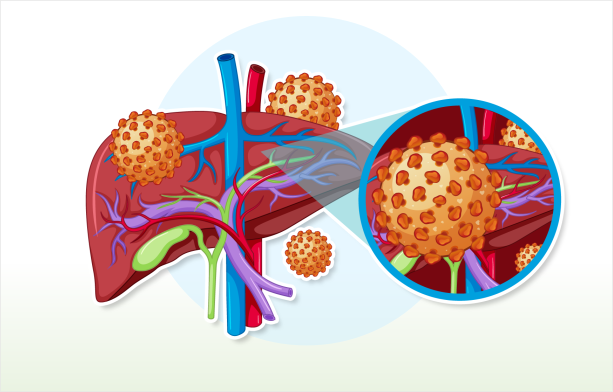hepatitis
Hepatitis is inflammation of the liver. It can be caused by several specific viruses (such as hepatitis A, B and C), as well as certain medications, autoimmune conditions and chronic alcohol abuse. In other words, there are many “types” of hepatitis, and it is often necessary to see a liver specialist to help identify the exact cause.
Common causes of hepatitis:
- Infections from parasites, bacteria, or viruses
- Liver damage from alcohol, drugs, or poisonous mushrooms
- An overdose of acetaminophen, which can be deadly
- Immune cells in the body attacking the liver and causing autoimmune hepatitis
- Fat accumulation (called fatty liver), which is often without symptoms
FAQ
What are the common types of viral hepatitis?
The common types are Hepatitis A, Hepatitis B, and Hepatitis C. Each is caused by a different virus and can have varying modes of transmission.
How is Hepatitis A transmitted?
Hepatitis A is primarily transmitted through the ingestion of contaminated food or water. It can also spread through close personal contact with an infected person.
How is Hepatitis B transmitted?
Hepatitis B can be transmitted through blood, semen, or other body fluids. Common modes include unprotected sex, sharing of needles, and from an infected mother to her baby during childbirth.
How is Hepatitis C transmitted?
Hepatitis C is mainly spread through contact with the blood of an infected person, often through sharing of needles or equipment for drug use. It can also be transmitted through unsafe medical practices or from an infected mother to her baby during childbirth.
What are the symptoms of hepatitis?
Symptoms may include fatigue, jaundice (yellowing of the skin and eyes), abdominal pain, nausea, vomiting, and dark urine. However, some people with hepatitis may not exhibit noticeable symptoms.
How is hepatitis diagnosed?
Diagnosis involves blood tests to detect viral markers, liver function tests, and sometimes imaging studies like ultrasound or a liver biopsy to assess the extent of liver damage.
Can hepatitis be prevented?
Yes, vaccination is available for Hepatitis A and B. Practicing safe hygiene, using protection during sex, avoiding sharing needles, and following proper infection control measures can help prevent the spread of viral hepatitis.
What are the complications of chronic hepatitis?
Chronic hepatitis, especially Hepatitis B and C, can lead to liver cirrhosis, liver failure, and an increased risk of liver cancer. Timely diagnosis and appropriate management are crucial in preventing complications.
How is hepatitis treated?
Treatment depends on the type and severity of hepatitis. Antiviral medications are available for Hepatitis B and C. Hepatitis A is usually a self-limiting infection, and supportive care is provided. Lifestyle changes, including avoiding alcohol, may be recommended to support liver health. Vaccination is a key preventive measure.


